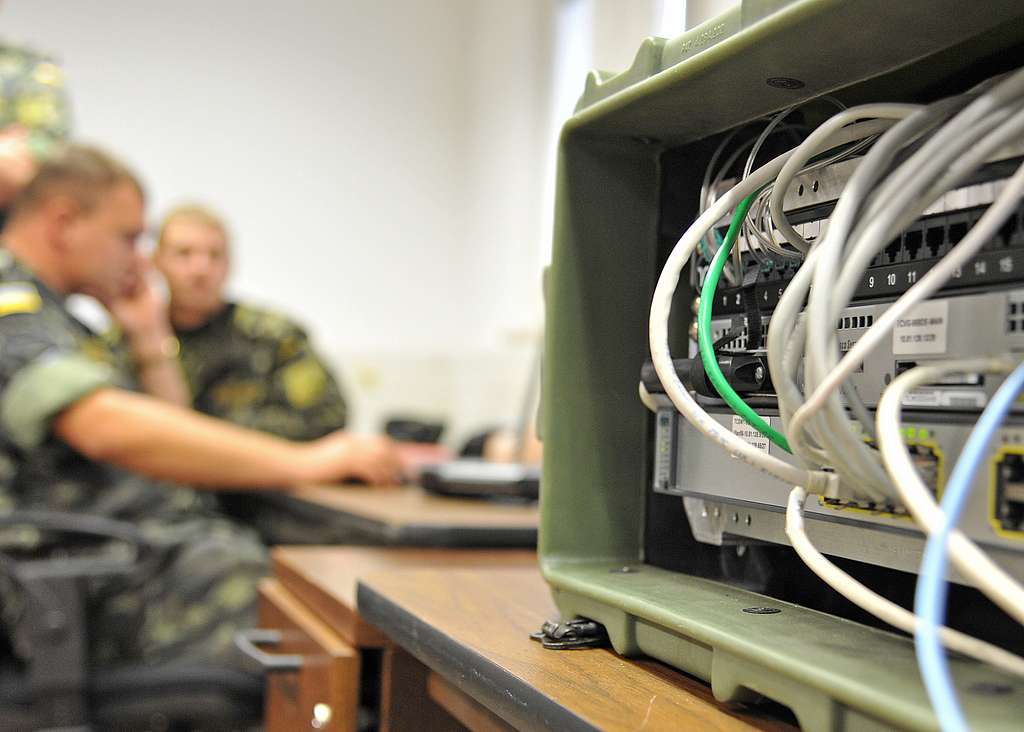George Will on Drones, Assassination, and Targeted Killing
As Ritika already noted, George Will has a column in today's Washington Post about drones and targeted killing. In it, he poses a question lots of people ask about drone strikes and that warrants a moment's attention: Is "targeted killing" just a polite, antiseptic phrase for assassination?
was the downing of Yamamoto’s plane an “assassination”?
Published by The Lawfare Institute
in Cooperation With

As Ritika already noted, George Will has a column in today's Washington Post about drones and targeted killing. In it, he poses a question lots of people ask about drone strikes and that warrants a moment's attention: Is "targeted killing" just a polite, antiseptic phrase for assassination?
 George Will[/caption]
I have a different problem with Will's column: In moving on to discuss whether targeted killing is justified, he loses sight of---and thus never answers---the question he posed of whether targeted killing is really just a form of assassination. Instead, he goes off on an extended discussion of an article by John Yoo, “Assassination or Targeted Killings After 9/11.”
I think the question he poses is an interesting one, as there is a lurking tension between government types and folks in the press and advocacy worlds over the use of the word "assassination." The word gets kicked around a lot by non-lawyers as a sometimes-pejorative synonym for targeted killing. Government officials, meanwhile, bristle at this, as Attorney General Holder did at one recent speech, describing instead a sharp line between lawful targeting and assassination.
The basic problem is that the term "assassination" lacks a stable definition. The Executive Order to which Will refers banned assassinations without bothering to define them. As Ken has written,
George Will[/caption]
I have a different problem with Will's column: In moving on to discuss whether targeted killing is justified, he loses sight of---and thus never answers---the question he posed of whether targeted killing is really just a form of assassination. Instead, he goes off on an extended discussion of an article by John Yoo, “Assassination or Targeted Killings After 9/11.”
I think the question he poses is an interesting one, as there is a lurking tension between government types and folks in the press and advocacy worlds over the use of the word "assassination." The word gets kicked around a lot by non-lawyers as a sometimes-pejorative synonym for targeted killing. Government officials, meanwhile, bristle at this, as Attorney General Holder did at one recent speech, describing instead a sharp line between lawful targeting and assassination.
The basic problem is that the term "assassination" lacks a stable definition. The Executive Order to which Will refers banned assassinations without bothering to define them. As Ken has written,
was the downing of Yamamoto’s plane an “assassination”? If British commandos had succeeded in the plan to kill German Gen. Erwin Rommel in Libya in 1941, would that have been an assassination? If President Ronald Reagan’s 1986 attack on military and intelligence targets in Libya, including one that Moammar Gaddafi sometimes used as a residence, had killed him, would that have been an assassination? What about the November 2001 CIA drone attack on a Kabul meeting of high-level al-Qaeda leaders that missed Osama bin Laden but killed his military chief? An old executive order and a new technology give these questions urgent pertinence. Executive Order 12333, issued by Reagan in 1981, extended one promulgated by Gerald Ford in 1976 — in response to revelations about CIA attempts to assassinate Fidel Castro — and affirmed by Jimmy Carter. Order 12333 says: “No person employed by or acting on behalf of the United States Government shall engage in, or conspire to engage in, assassination.” What, then, of the Navy SEALs who killed Osama bin Laden? The new technology is the armed drone, which can loiter over the suspected location of an important enemy person and, in conjunction with satellite imagery, deliver precision-guided munitions in a matter of minutes.Will's column attracted a strong response from The Atlantic's Connor Friedersdorf, who called it an "uncharacteristically obtuse column on President Obama's drone war." Friedersdorf's problem is that Will "declares [drone strikes] justified, a conclusion he reaches without bothering to evaluate [the] particulars [of the drone war]. Instead, he embarks on a theoretical exploration of whether it is defensible in theory to kill Al Qaeda terrorists with unmanned aerial vehicles, ignoring real-world events and unintended consequences as obliviously as a 1970s liberal extolling the wisdom of rent control." [caption id="" align="alignleft" width="116"]
 George Will[/caption]
I have a different problem with Will's column: In moving on to discuss whether targeted killing is justified, he loses sight of---and thus never answers---the question he posed of whether targeted killing is really just a form of assassination. Instead, he goes off on an extended discussion of an article by John Yoo, “Assassination or Targeted Killings After 9/11.”
I think the question he poses is an interesting one, as there is a lurking tension between government types and folks in the press and advocacy worlds over the use of the word "assassination." The word gets kicked around a lot by non-lawyers as a sometimes-pejorative synonym for targeted killing. Government officials, meanwhile, bristle at this, as Attorney General Holder did at one recent speech, describing instead a sharp line between lawful targeting and assassination.
The basic problem is that the term "assassination" lacks a stable definition. The Executive Order to which Will refers banned assassinations without bothering to define them. As Ken has written,
George Will[/caption]
I have a different problem with Will's column: In moving on to discuss whether targeted killing is justified, he loses sight of---and thus never answers---the question he posed of whether targeted killing is really just a form of assassination. Instead, he goes off on an extended discussion of an article by John Yoo, “Assassination or Targeted Killings After 9/11.”
I think the question he poses is an interesting one, as there is a lurking tension between government types and folks in the press and advocacy worlds over the use of the word "assassination." The word gets kicked around a lot by non-lawyers as a sometimes-pejorative synonym for targeted killing. Government officials, meanwhile, bristle at this, as Attorney General Holder did at one recent speech, describing instead a sharp line between lawful targeting and assassination.
The basic problem is that the term "assassination" lacks a stable definition. The Executive Order to which Will refers banned assassinations without bothering to define them. As Ken has written,
The Executive Order, after all, provides no definition of assassination, and the materials collateral to the three versions of the order shed little if any authoritative light on what it is supposed to mean. The issue has been repeatedly on the table for the obvious reason that, interpreted as widely as it might be, Executive Order 12333 would appear to preclude the targeting of the head of a hostile state who was, for example, the commander in chief of enemy armed forces and otherwise a legal target. The order does not distinguish between wartime and peacetime either, between armed conflict governed by IHL targeting standards or anything else. . . . The view of Legal Adviser to the State Department under Reagan, Abraham Sofaer, for example, was that assassination was not merely a killing with a political motive or aimed against a political leader, but that it also independently had to be a “murder” in the first place. Sofaer noted that “virtually all available definitions of ‘assassination’ include the word ‘murder’ … a crime[;] that element is the most fundamental aspect of the assassination prohibition.” Thus, under “no circumstances” should assassination be defined to include any otherwise “lawful homicide.” Unlawfulness, in the State Department view of the 1980s, and apparently not contravened by later pronouncements, is a necessary prior element of an assassination.This idea that a lawful killing is by definition not an assassination remains the position of the U.S. government. As Holder put it in the speech noted above,
Some have called [targeted killings] “assassinations.” They are not, and the use of that loaded term is misplaced. Assassinations are unlawful killings. Here, for the reasons I have given, the U.S. government’s use of lethal force in self defense against a leader of Al Qaeda or an associated force who presents an imminent threat of violent attack would not be unlawful---and therefore would not violate the Executive Order banning assassination or criminal statutes.The trouble is that in the word's more colloquial usages, it does not necessarily imply only unlawful killing. The Oxford English Dictionary defines the word as "the taking of the life of any one by treacherous violence, esp. by a hired emissary, or one who has taken upon him to execute the deed." Some dictionaries, like the Webster's and American Heritage online editions, do make "murder" a key feature of their definitions of the word. But not all do. Indeed, while I don't think drone strikes are "treacherous," I was surprised by how untethered the OED's definition of "assassination" is from the legality of the killing. What's more, in several recent informal discussions with non-lawyers, I was surprised to find that not all have a sense of the word as carrying the implication of illegality at all. Rather, people seem to use the term as a synonym for individual targeting---even in wartime. In one recent conversation, I found myself the only person in a small group discussion who would not comfortably describe U.S. forces as having "assassinated" Admiral Yamamoto during World War II. And note that my interlocutors in this conversations were not objecting to the shooting down of Admiral Yamamoto's plane. They saw the term "assassination" as morally neutral, as well as legally neutral. In other words, I think it's important to distinguish the colloquial from the legal understandings of the term "assassination" in addressing Will's question. To the extent one is speaking legally, targeted killings under the AUMF or under any other regime that makes targeting lawful are clearly not assassinations, in my view, and not covered by the Executive Order. On the other hand, while I don't personally use the term this way, there are a lot of people who seem to use the word "assassination" colloquially to refer to any specific individual targeting, and certainly some targeted strikes meet this broader definition. Of course, the more this usage catches on, the more we will have to accept that not all assassination is illegal.
Benjamin Wittes is editor in chief of Lawfare and a Senior Fellow in Governance Studies at the Brookings Institution. He is the author of several books.





